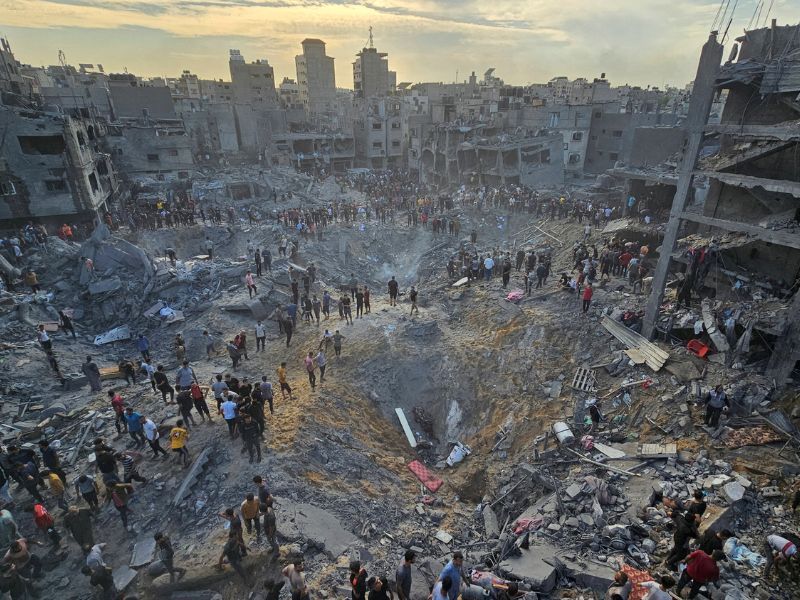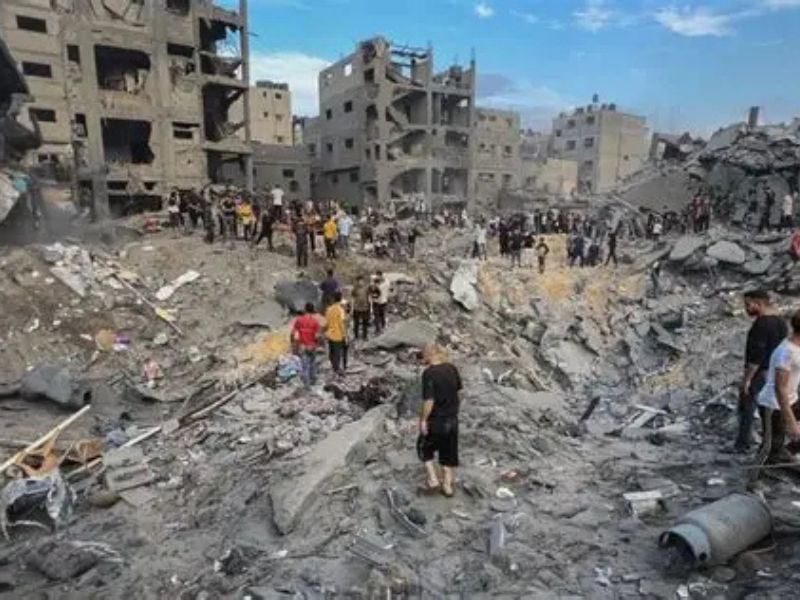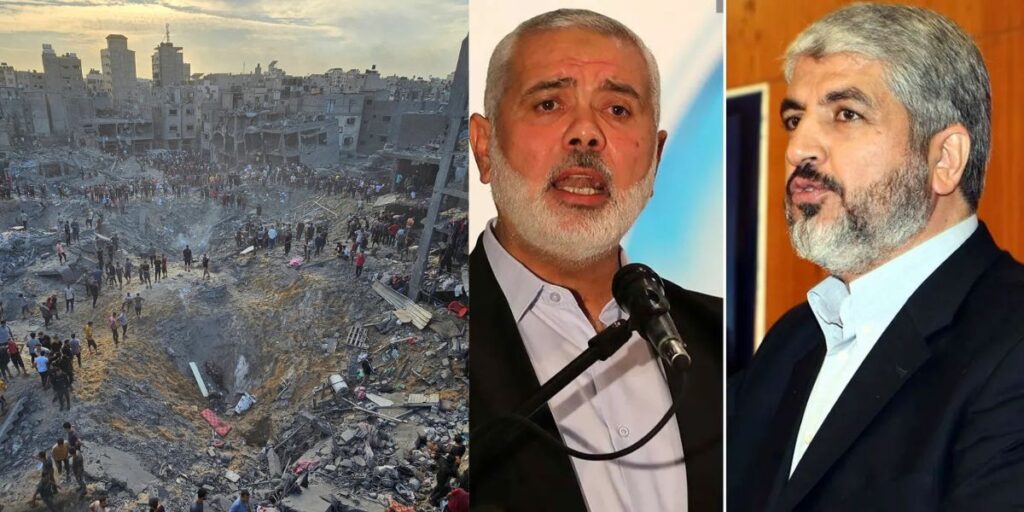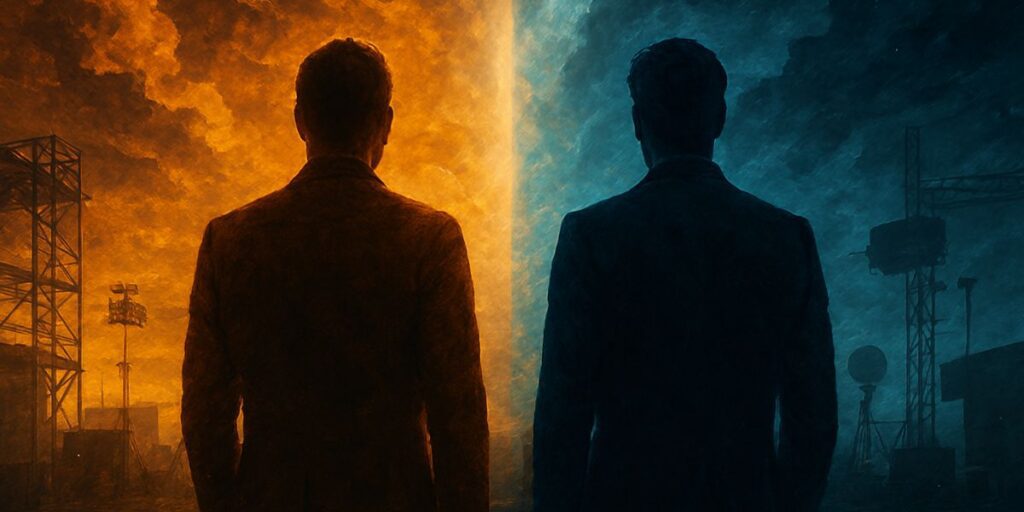It’s hard not to feel shaken when peace talks, those fragile hope threads, are interrupted by bombings. When I first heard about the Israel Qatar airstrike, I thought: “Is this really happening during ceasefire negotiations?” Sadly, yes. As leaders from Hamas gathered in Doha, Qatar, to consider a ceasefire proposal, they were struck by an Israeli attack. The timing, the setting, the stakes — all made this more than just another headline. This event reshapes not only diplomatic trust, but raises deep questions about what it takes for peace to survive in such volatile times.
What Happened: The Strike in Doha
- On September 9, 2025, an airstrike believed to be ordered by Israel hit a compound in Doha, Qatar, targeting senior members of Hamas during ceasefire discussions.
- According to reports, five Hamas members were killed, including Humam al-Hayya, son of Khalil al-Hayya, a key negotiator. A Qatari security officer was also among the dead. AP News
- The senior leadership — including Khalil al-Hayya himself, survived. Hamas says the strike failed to hit the top tier of its leadership.
Why This Struck Such a Chord

This isn’t the first time violence and peace negotiations have collided, and it won’t be the last. But a few specific things about this incident amplify its impact, lets know more about Israel Qatar airstrike:
- Timing during talks: The meeting was not casual, it was a serious negotiation over a U.S.-backed ceasefire proposal. That makes the strike more than a military tactic; it’s a diplomatic sledgehammer.
- Location in Qatar: Doha is not just any city; it’s been a major mediation hub. Qatar has played a central role in bringing parties to the table. An attack there risks undermining its credibility and safety as a neutral ground.
- High Stakes for Hostage Deals: Part of what was being negotiated had to do with releasing hostages, ending long-standing conflict, and restoring humanitarian relief. The strike threatens to undo progress in all of those.
Reactions & Consequences
- Hamas called the strike a crime and said it would not change their demands for a ceasefire, full Israeli withdrawal, a serious prisoner-for-hostage exchange, more humanitarian aid, and reconstruction.
- Qatar condemned it angrily, calling it a violation of sovereignty and law. Its role as mediator is now strained.
- Regional & International Response: Gulf states including Saudi Arabia, UAE, and international bodies like the European Union have expressed concern or condemnation. Some see it as a potential derailment of ceasefire efforts.
- Israel’s Justification: Israel says its leadership in Hamas are behind the October 7, 2023 attack, and that this strike was part of a broader strategy to weaken Hamas’s ability to wage war. It also alleges that waiting for peace is not waiting for peace-builders, but letting Hamas continue harmful operations.
What It Means: The Broader Implications
| Issue | Potential Impact |
|---|---|
| Diplomatic trust | Trust between mediators and negotiators is fragile. When ceasefire discussions are bombed, parties may hesitate to negotiate on foreign soil again. |
| Ceasefire feasibility | The strike could be interpreted as bad faith, making Hamas less likely to accept proposals or engage. |
| Sovereignty concerns | Striking in Doha raises questions about respecting the borders and laws of mediating nations. It sets a precedent others may feel entitled to follow. |
| Humanitarian implications | Delay of aid, continuation of conflict, more suffering for civilians caught in the crossfire. |
Real-Life Analogies to Ground It

Think of this like negotiating a peace between two neighbors inside a home, with a third party hosting and trying to help. If one neighbor smashes the door of the home while talks are ongoing, the host can no longer guarantee safe space. The injured party may refuse to return. The damage is not just the broken door; it’s the trust that can’t easily be repaired.
Another analogy: imagine you’re trying to resolve conflict in a workplace via mediation. Suddenly one side takes legal action in the company’s mediation office. Even if no one major is removed by that action, the message is clear, no place is safe, and that undermines the whole process. The Israel Qatar airstrike is bound to lead us to something terrible, do you mind if i call it war.
FAQ?
Q1. What exactly is being called the “Israel Qatar airstrike”?
It refers to the airstrike by Israeli forces targeting Hamas members in Doha, Qatar, during ceasefire negotiations. The attack struck a compound where high-level Hamas leaders were discussing a proposed ceasefire.
Q2. Did any top Hamas leaders die in the strike?
No. According to Hamas, senior leadership including Khalil al-Hayya survived. The casualties included his son and his office director, bodyguards, and a Qatari security officer.
Q3. How did this strike affect the ceasefire talks?
It jeopardized them. It has shaken trust, raised accusations of violation of international norms, and led to emotional and political backlash. Qatar, Hamas, and other regional players are now questioning whether talks can continue without guaranteeing safety.
Q4. Why did Israel say it carried out the strike?
Israel’s rationale includes: to target leadership believed responsible for ongoing attacks, including the October 7, 2023 attack, and to disrupt Hamas’s command structure. Israel also argues that these leaders had been using international safe havens for planning. The Washington Post
Q5. What is Qatar’s role in all of this?
Qatar is acting as mediator. It has been hosting Hamas’s negotiators and working with U.S. and Egypt to broker ceasefire proposals. The strike on its soil has placed it in a difficult position, balancing its mediation role, its diplomatic relationships, and its own sovereignty.
Why It Matters: A Takeaway
The Israel Qatar airstrike is more than an act of war; it’s a signal. It tells us that even negotiations meant to end suffering can themselves become targets. It also shows how warfare in this conflict isn’t limited to battlefields, it spills into diplomacy, into mediation, into realms supposedly immune from violence.
Whether peace ever holds will depend not just on military might, but on political bravery, on honoring ceasefire spaces, on respecting mediators’ roles, and rebuilding trust once broken. The path is narrow, and now more precarious.
Conclusion
The airstrike in Doha marks a dramatic moment in the Gaza-Hamas-Israel conflict. Even though key Hamas leaders lived through it, many lives were lost, and the implications ripple far beyond one event. The Israel Qatar airstrike has threatened ceasefire talks, shaken international relations, and put Qatar’s mediation role under the spotlight.
But as grim as it feels, this moment also reveals what many have known: peace is fragile, negotiations are risky, and trust is everything. If we want a ceasefire that lasts, everyone involved, including negotiators, mediators, and those in power—must protect the spaces where speaking is possible without fear. You might want to dive deep into recent news here.
As you reflect on this, imagine a world where ceasefire agreements are kept not just by words, but by actions—where bombs never break negotiations again. Do you think the Israel Qatar airstrike will permanently damage hope for peace, or can it become a catalyst for stronger safeguards in negotiations?



